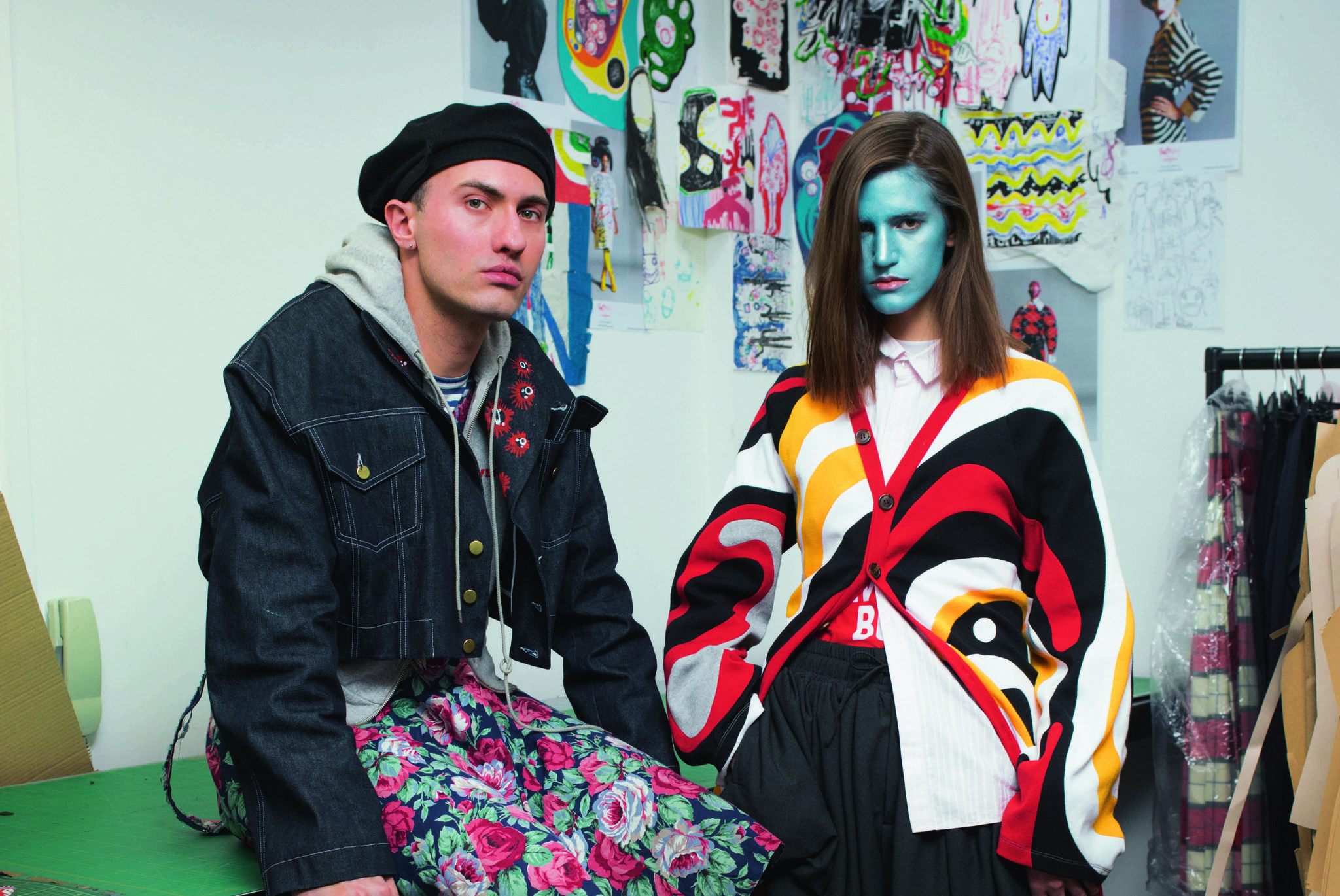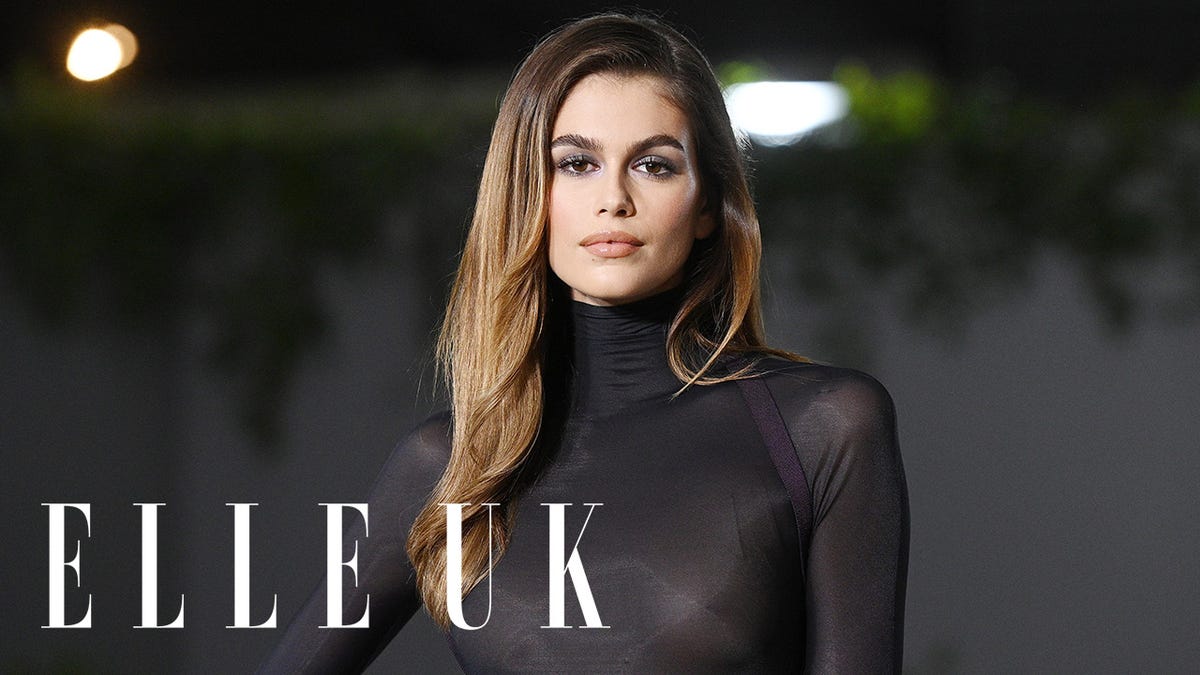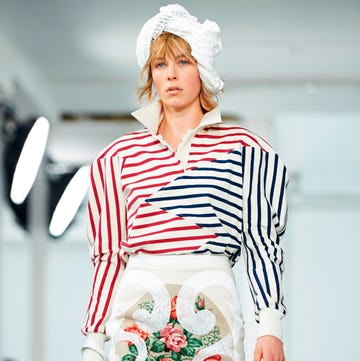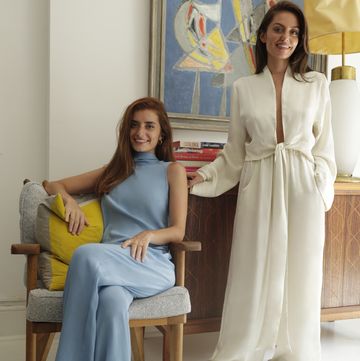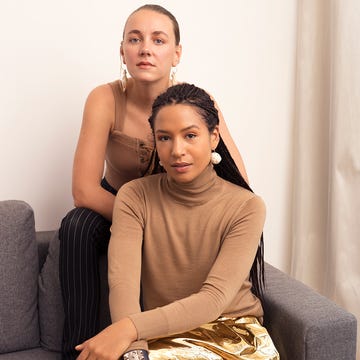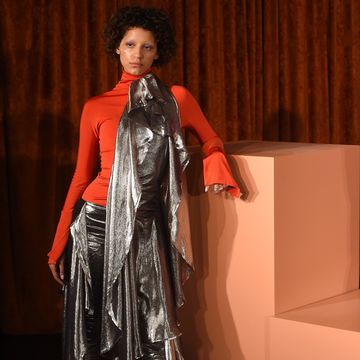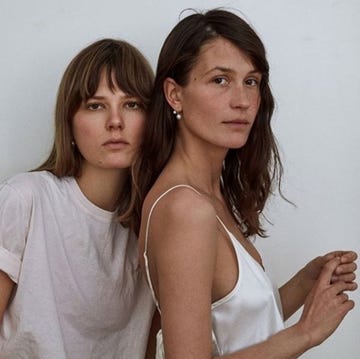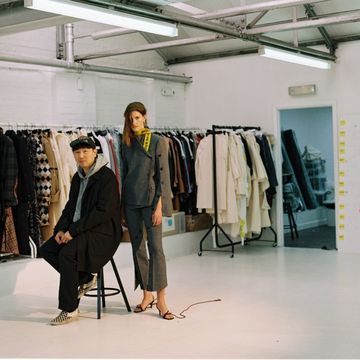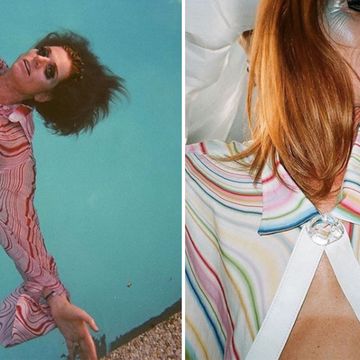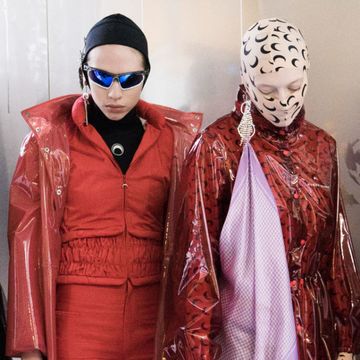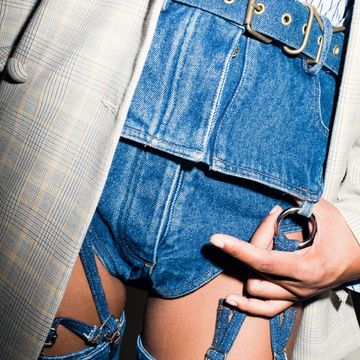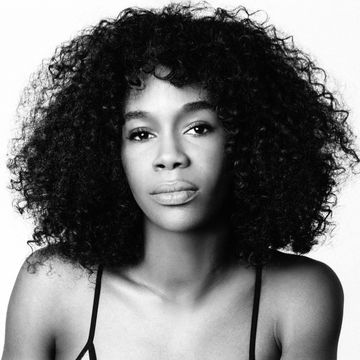When we meet Charles Jeffrey, he’s zhuzhing his east London flat. His dishwasher just kicked it, but Charles isn’t the type to let anything as basic as domestic repairs impede self-expression.
‘I was just taking a selfie,’ he says brightly, capturing his ‘navy vibe’ (a blue suit, vintage pullover with a sailor’s collar, beret and Gentle Monster glasses).
The London-based Scot is the latest star to emerge from the design capital. With extravagant shows and a non-binary ethos, his Charles Jeffrey Loverboy collections carry what he calls ‘a stench of fantasy’. At his AW18 show, he unleashed a horde of painted figures to scream at the front row in a primal performance that critics compared to an Alexander McQueen show in its intensity. ‘The theatricality and the proposal of the show are just as important as the silhouette of the jacket,’ he says.
Jeffrey recalls a childhood of rich imagination; fashion came into the picture in his teens, when he started buying Arena Homme + magazine and absorbing style from Will & Grace. ‘Clothes played an important role in me identifying who I was as a queer person. They helped me say, “This is who I am. Is there anybody else who is the same?” Clothes should always be there to help with that,’ says Jeffrey.
He moved to London at the age of 18 for a foundation course at Central Saint Martins and stayed for eight years, studying BA and MA fashion under legendary course director Louise Wilson. Internships at Jack Wills and Christian Dior introduced him to the retail-fashion world and motivated him to go his own way. In 2015, he set up Loverboy, a club night at London’s Vogue Fabrics, and used the proceeds from the parties and four part-time jobs to fund his label, which is now stocked by Dover Street Market and Matches Fashion. His hard work paid off at the 2017 Fashion Awards, where he collected the British Emerging Talent Menswear award from his hero, John Galliano, in a full face of Versailles-inspired make-up. ‘We’re gonna boogie,’ he promised after his win – and it’s that energy that is central to the world Jeffrey has built.
He was ‘over the moon’ to find out his label was shortlisted for the LVMH Prize. ‘Our non-binary format is a big part of the reason [we were nominated],’ he says. ‘It’s companies like LVMH’s responsibility to support us as a community.’ And regardless of the outcome, with Japanese designer Doublet taking the prize, the visibility that came with being shortlisted put the spotlight on shifting attitudes towards gender. And Charles is one of those ensuring that the conversation keeps moving forward.
This interview originally appeared in the July issue of ELLE UK.
